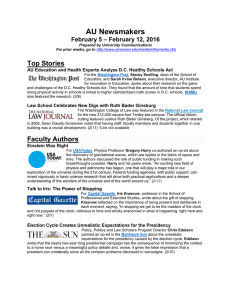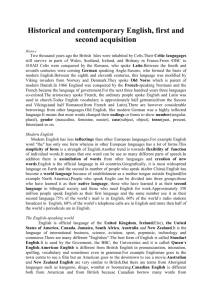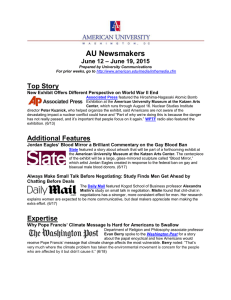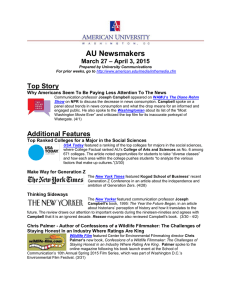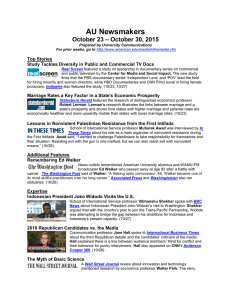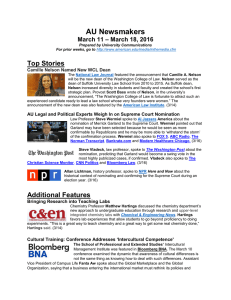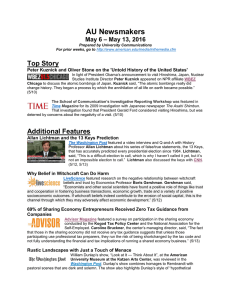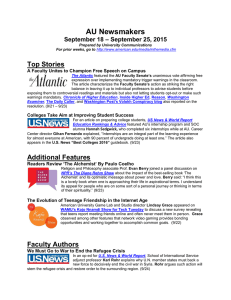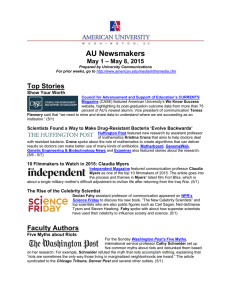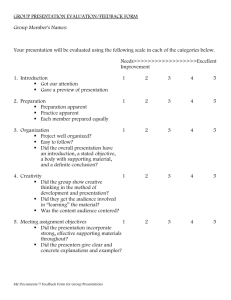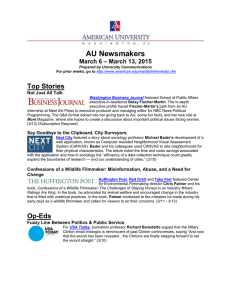AU Newsmakers – November 6, 2015 October 30
advertisement
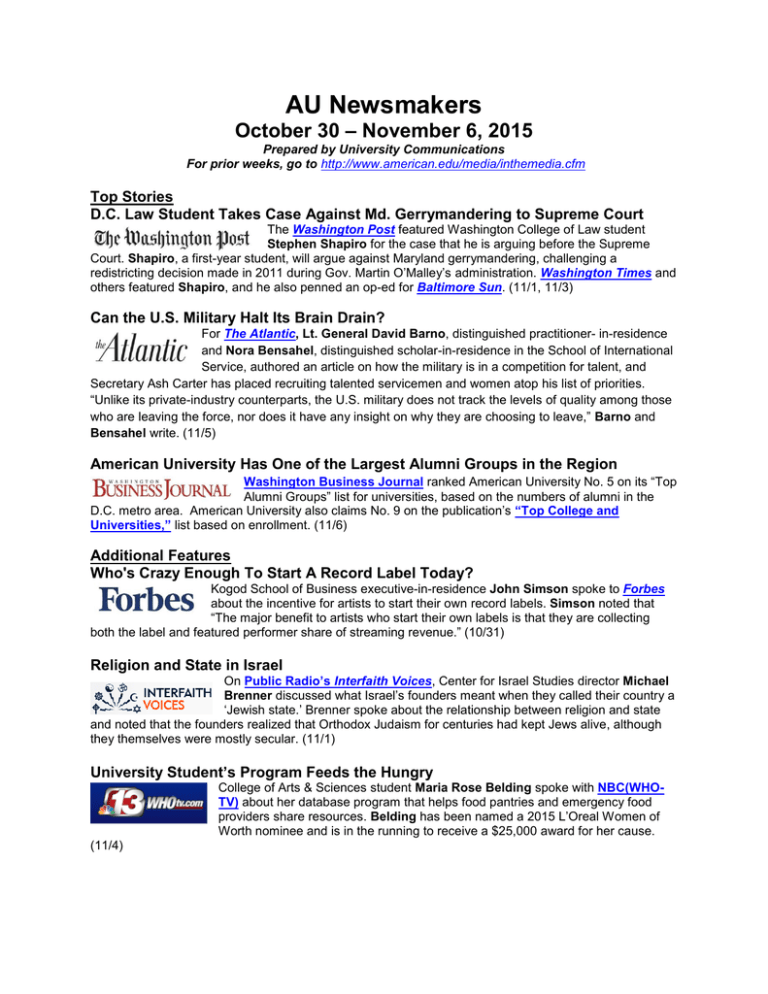
AU Newsmakers October 30 – November 6, 2015 Prepared by University Communications For prior weeks, go to http://www.american.edu/media/inthemedia.cfm Top Stories D.C. Law Student Takes Case Against Md. Gerrymandering to Supreme Court The Washington Post featured Washington College of Law student Stephen Shapiro for the case that he is arguing before the Supreme Court. Shapiro, a first-year student, will argue against Maryland gerrymandering, challenging a redistricting decision made in 2011 during Gov. Martin O’Malley’s administration. Washington Times and others featured Shapiro, and he also penned an op-ed for Baltimore Sun. (11/1, 11/3) Can the U.S. Military Halt Its Brain Drain? For The Atlantic, Lt. General David Barno, distinguished practitioner- in-residence and Nora Bensahel, distinguished scholar-in-residence in the School of International Service, authored an article on how the military is in a competition for talent, and Secretary Ash Carter has placed recruiting talented servicemen and women atop his list of priorities. “Unlike its private-industry counterparts, the U.S. military does not track the levels of quality among those who are leaving the force, nor does it have any insight on why they are choosing to leave,” Barno and Bensahel write. (11/5) American University Has One of the Largest Alumni Groups in the Region Washington Business Journal ranked American University No. 5 on its “Top Alumni Groups” list for universities, based on the numbers of alumni in the D.C. metro area. American University also claims No. 9 on the publication’s “Top College and Universities,” list based on enrollment. (11/6) Additional Features Who's Crazy Enough To Start A Record Label Today? Kogod School of Business executive-in-residence John Simson spoke to Forbes about the incentive for artists to start their own record labels. Simson noted that “The major benefit to artists who start their own labels is that they are collecting both the label and featured performer share of streaming revenue.” (10/31) Religion and State in Israel On Public Radio’s Interfaith Voices, Center for Israel Studies director Michael Brenner discussed what Israel’s founders meant when they called their country a ‘Jewish state.’ Brenner spoke about the relationship between religion and state and noted that the founders realized that Orthodox Judaism for centuries had kept Jews alive, although they themselves were mostly secular. (11/1) University Student’s Program Feeds the Hungry College of Arts & Sciences student Maria Rose Belding spoke with NBC(WHOTV) about her database program that helps food pantries and emergency food providers share resources. Belding has been named a 2015 L’Oreal Women of Worth nominee and is in the running to receive a $25,000 award for her cause. (11/4) Faculty Author It's Not Too Late for Amendment 28 Assistant dean for faculty affairs in the School of Professional and Extended Studies Jason Fabrikant authored an op-ed in the Huffington Post about the need for a constitutional amendment to address D.C. citizens’ voting rights, saying, “The right to vote for representatives in Congress is fundamental to every American, not just citizens of the 50 states.” (11/2) Expertise 2016 Republican Candidates vs. the Media For CNN, professor of journalism and media studies Jane Hall discussed the contentious relationship between the media and the Republican primary presidential candidates. Hall expressed that the moderators of the third GOP debate “lost their way and did not seem to be in command of the debate.” (10/30) What Ben Carson’s New Rap Ad Means for His Campaign Government professor David Lublin spoke with Christian Science Monitor about presidential candidate Ben Carson’s new ad targeting black voters, saying, “His attacks on President Obama and his embrace of hard-line Republican viewpoints have alienated a lot of African-Americans.” (11/5) As the Hirshhorn’s New Director, Melissa Chiu is Raising Millions The Washington Post featured comments by Jack Rasmussen, director and curator at the American University Museum at the Katzen Arts Center, about the new director of the Hirshhorn Museum. Rasmussen noted that Melissa Chiu is wise for going where funding opportunities are, but that she also needs to establish credibility in Washington. (10/30) America’s Political Reality and Young People With the Examiner, Women & Politics Institute director Jennifer Lawless spoke about the reluctance of young adults to enter politics. Lawless also spoke with Fox News Latino about Ted Cruz’s wife being an asset to his campaign, saying, “She makes her husband more palatable.” (10/30, 11/5) Obama’s Foreign Policy Promises Then and Now Law professor Steve Vladeck spoke with the Huffington Post about the transformation of President Obama’s foreign policy promises, saying, “Congress is partially to blame for this. Lawmakers don’t need the executive to tell them to replace an outdated war authorization with one tailored to the current conflict.” (11/1) Bush Seeks to Reboot Faltering Presidential Campaign History professor Allan Lichtman spoke with Voice of America about Jeb Bush’s attempt to reboot his campaign. “Jeb Bush has run one of the worst campaigns in modern history. He not only commits gaffes, he doesn’t seem committed to the campaign. He’s not crisp, he’s not sharp, he’s not appealing,” Lichtman said. (11/2) Today in History: “War of the Worlds” on Radio Causes Riots, Maybe Communication studies professor Joseph Campbell spoke with KCPW Public Radio about H.G. Wells’ famous made-for-radio drama ‘War of the Worlds.’ Campbell spoke about the effectiveness of the myth as news reports detailed frantic evacuations and panic nationwide; however, there was no evidence of any widespread fear and disturbance. (10/30) Bonus Clip Study Finds Controlled Washington, D.C. Wildfires Crucial For Restoring Healthy Political Environment The Onion spoofed AU faculty wonks in a post highlighting fabricated research about the university's strengths in public administration and policy. “Periodic blazes that destroy sections of the Beltway region are a natural part of the political cycle and play a key role in maintaining democratic balance,” according to the study. (11/3)
